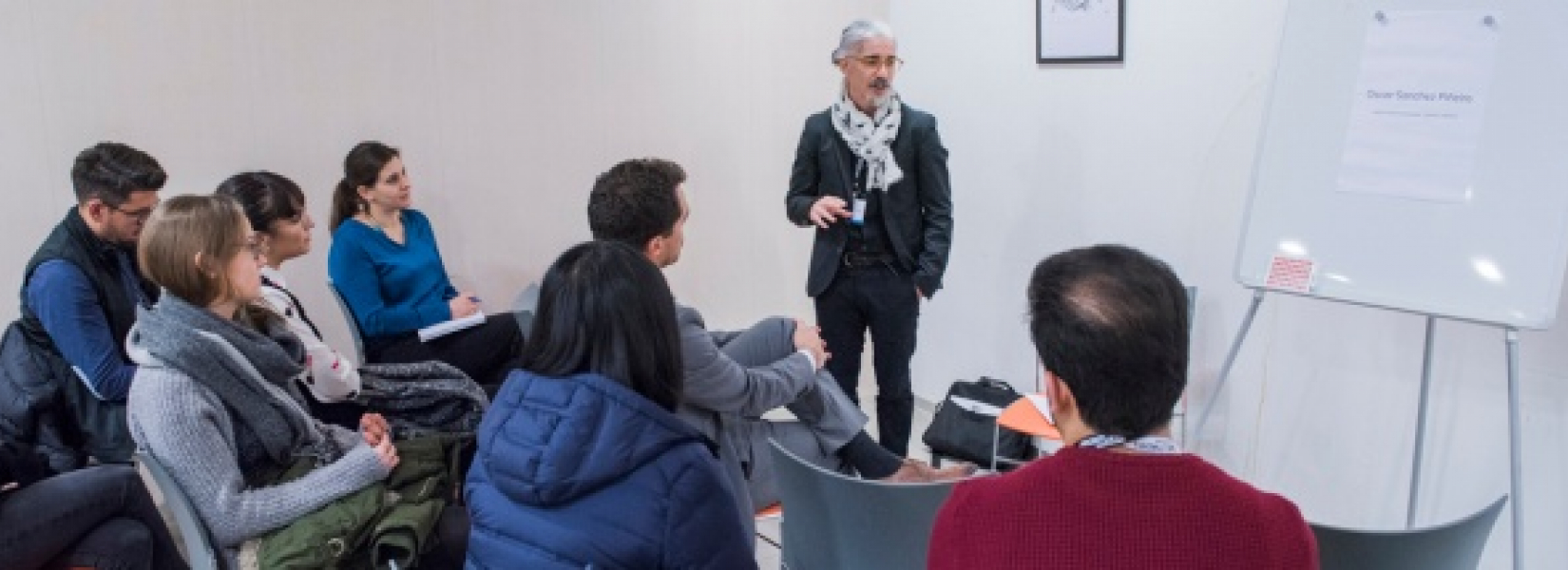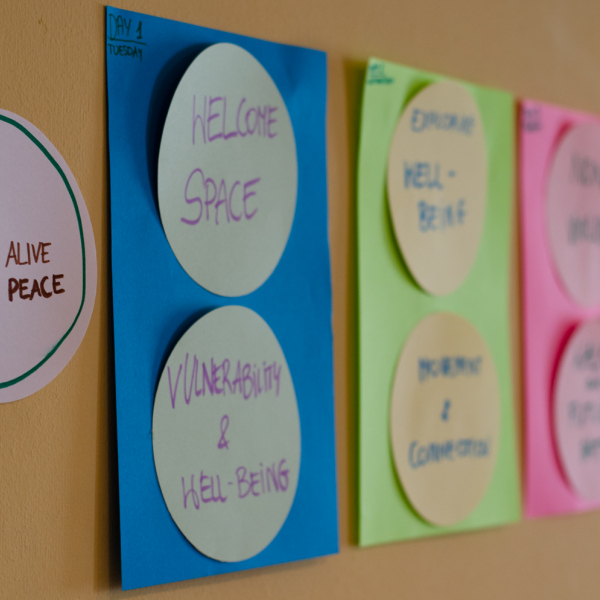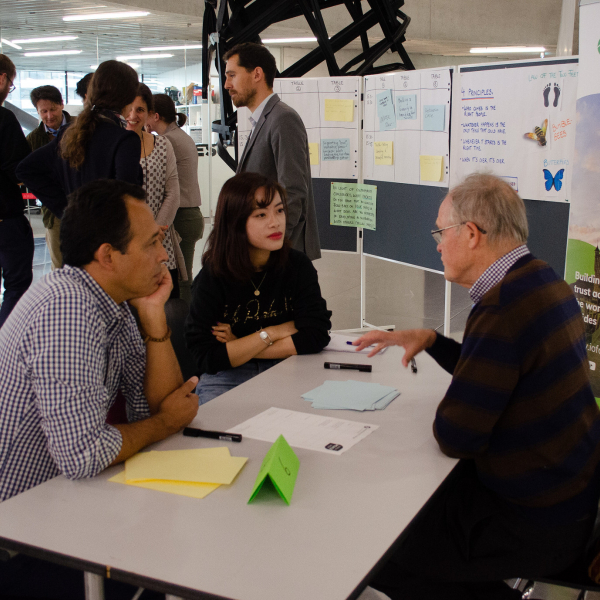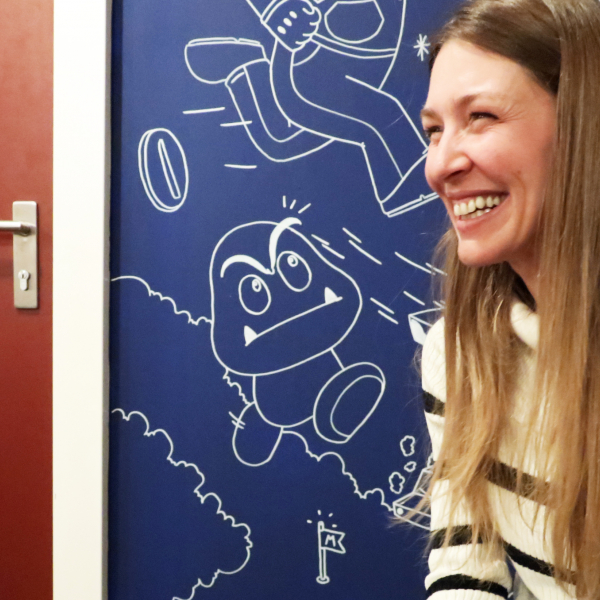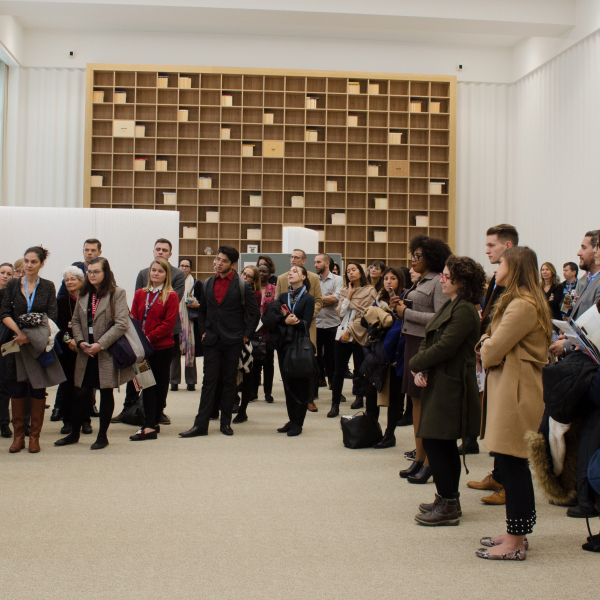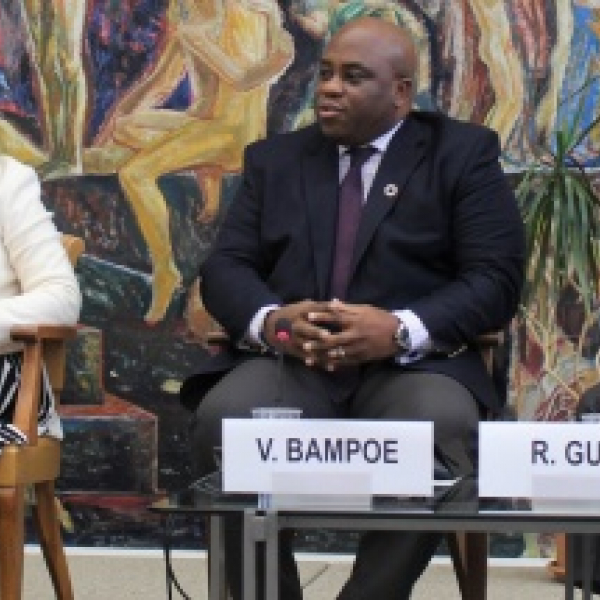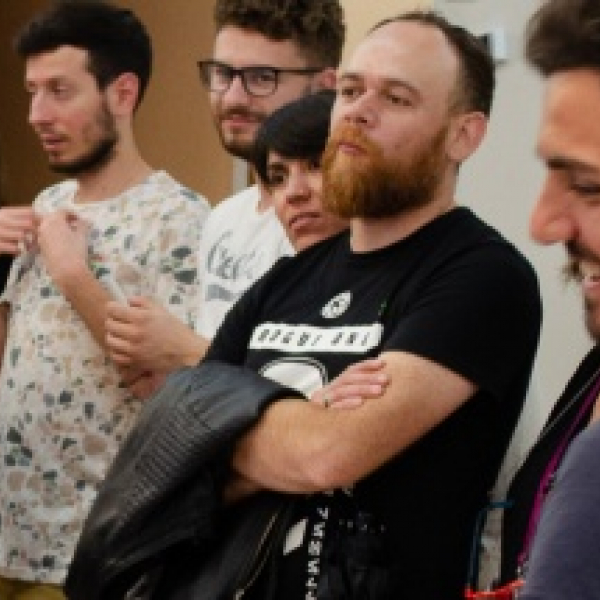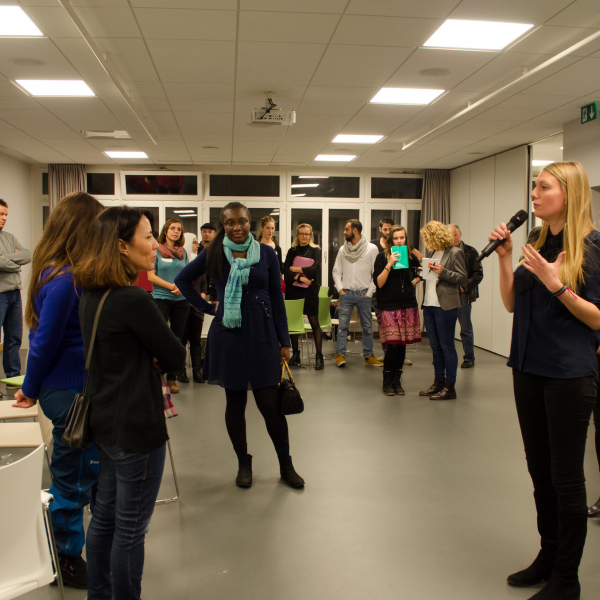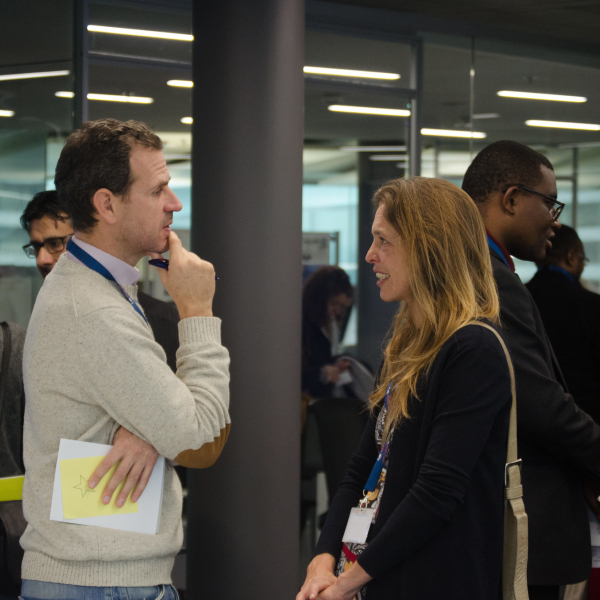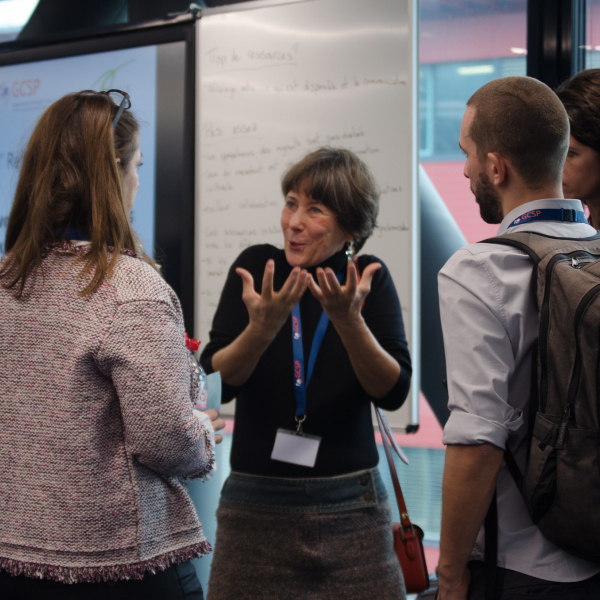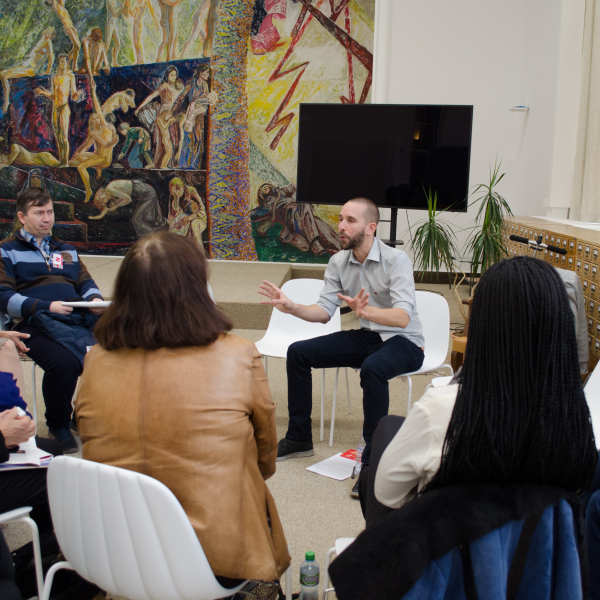Stories from the frontline
A Human Library Event
10/12/2018Humanitarian field workers who deal every day with belligerent groups in the most dangerous places in the world need specific skills and techniques. Such institutions as the International Committee of the Red Cross (ICRC), Médecins Sans Frontières (MSF) and the World Food Programme (WFP) invest energetically in training their staff in advanced negotiating skills, security frameworks and international humanitarian law.
However, these professional skills are not enough, according to four frontline negotiators who took part in a human library event co-organized by the Competence Centre on Humanitarian Negotiation (CCHN) and Initiatives of Change Switzerland. Strong human and interpersonal skills, and even empathy and love, are also essential.
The event took place on 4 December 2018, during the Third Annual Meeting of CCHN, a community of humanitarian workers and institutions which is a joint initiative of the ICRC, the UN High Commission for Refugees (UNHCR), WFP, MSF Switzerland and the Centre for Humanitarian Dialogue (HD).
One of the human books, Óscar Sánchez Piñeiro, a Senior Field Coordinator for UNHCR in Iraq, described how he acquired some of his most basic negotiating skills, as a Spaniard growing up in a conflict-ridden area of the United Stated. During his childhood and adolescence, he said, ‘violence was the order of the day’. He had to negotiate his way to and from school: ‘You had to know how to walk those streets.’ One of the most important assets in humanitarian negotiations is to be able to connect in a human way, he asserted.
Vivian Caragonis, who works for WPF in South Sudan, spoke of dealing with people who may have committed the most horrendous crimes and human rights violations. ‘You have to forgive,’ she said, ‘keeping in mind that there will be justice for those crimes.’ She places love and her religious beliefs at the forefront of her humanitarian work. ‘When you love your interlocutors, you fulfil humanitarian principles; besides, it creates a positive surprise and it gives you impartiality and independence.’
The human library also showcased the personal stories of Raphael Veicht, Head of Mission for MSF in South Sudan, and Markus Brudermann, Head of the Regional Delegation of the ICRC to Cameroon. Both shared the challenges they had experienced on the frontline from a personal, even intimate, perspective.
Following these personal accounts, Joëlle Germanier, Negotiation Support Specialist at CCHN, officially launched the first CCHN Field Manual on Frontline Humanitarian Negotiation. She explained that the document’s richness lies in the fact that, rather than taking an academic approach, it collects experiences and learnings from frontline humanitarian negotiators around the world.
This was the last Human Library event organized by Initiatives of Change Switzerland in 2018, in collaboration with partner institutions and organizations, as part of its Enriching Encounters series. It proved again that storytelling, in a highly institutionalized context such as Geneva International, disrupts the classic conference-expert dynamic and creates a whole different atmosphere. It allows participants to connect and network in a more human way and to explore the scope of trust in advancing peace, dialogue and tolerance.
©Mark Henley | CCHN
